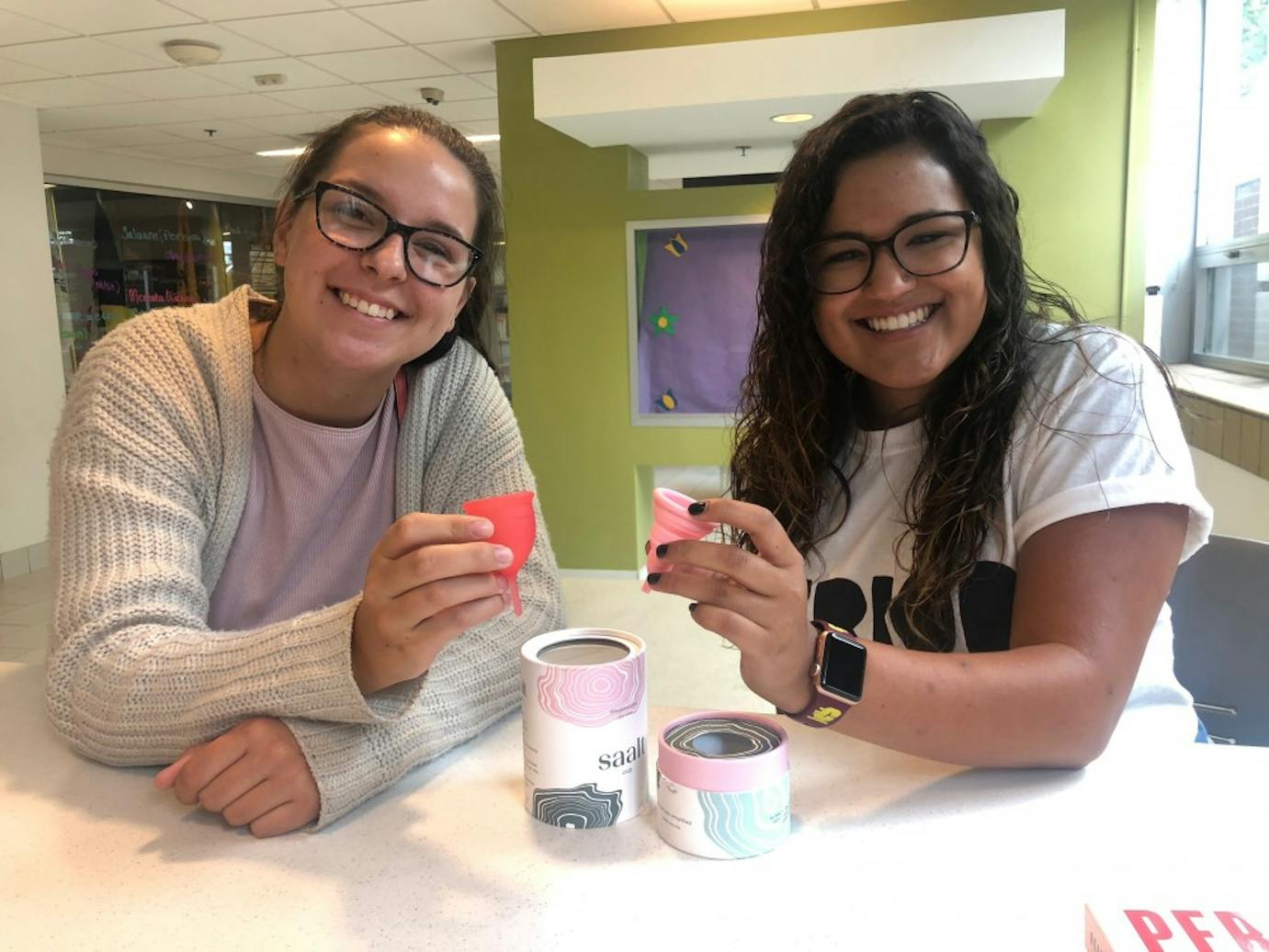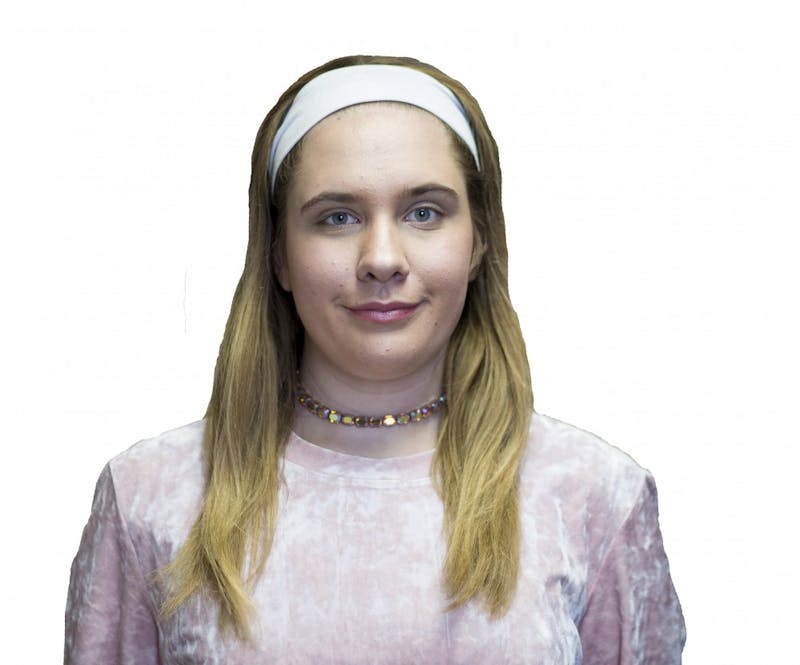CMU's first-ever PERIOD. chapter aims to combat period stigma, period poverty

Alexx Delzer couldn't help feeling as though menstruation was a subject designed strictly for secrecy.
The Midland senior said much of her passion for periods sprouts from tiredness of a normality being treated like a "bloody" taboo. Her organization, Period aims to relax the dialogue around menstruation throughout Central Michigan University.
"We want to start asking why we can't just ask for tampons and period help at the start of class without being afraid of judgement. Why do periods need to be whispered about like a secret code and why can't they be a valid excuse for missing a function?" the organization's president said.
In its debut year, the organization has partnerships with menstrual cup brands like Saalt, Intimina and OrganiCup in order to offer free cups to students. They are also working with a developing project to offer reusable pads this semester.
Items can be won through random name drawings and via social media challenges through their Instagram at Period.CMU.
This year, the organization plans on facilitating open discussions about healthy menstruation, products and resources available to students. It also plans on representing CMU at the Michigan National Period Day Rally Oct. 19 at the University of Michigan in Ann Arbor, which will be demanding freely-accessible products in public schools, shelters and prisons and the elimination of any added sales tax on menstrual items.
The idea for the group was born while Delzer was writing a proposal on sustainable menstruation this summer, which promoted menstrual cups as a device for combating the environmental impact of non-biodegradable pads and tampons, as well as battling period poverty.
According to OrganiCup's online resources, 12 billion pads and 7 million tampons occupy landfills each year, with general pads being made out of 90 percent plastic and tampons often containing chemicals like chlorine and dioxin.
Delzer said the treatment of menstruation amplifies not just an environmental and feminist issue, but an economic problem, especially for students.
"Period poverty is something that is very overlooked and ignored, but also something that is very real and happening all around us each and every day," she said. "I know because I've been there. I've been the girl sitting in class, who just started her period and only has $20 in her bank account and now has to spend $10 for a box of tampons."
By investing in multiple menstrual cups, which can last individually up to 12 years, Delzer said she was able to turn a monthly purchase into a cost she hopefully won't have to worry about for the next three decades.
Although Period awaits being formally recognized by the Office of Student Activities and Involvement, it has been authorized as one of more than 400 campus chapters of PERIOD, a worldwide campaign.
The campaign's mission is to eliminate period poverty and stigma by practicing and advancing in service, education and advocacy.
For Ohio senior Allison Brookshier, a past-and-present intimidation by her period inspired her to dive head first into serving as the group's treasurer.
"I hope at the very least, we can change views on periods and offer an outlet for people to learn how to better accept and love their period," Brookshier said. "I'm super passionate about this because it's something I've struggled with. I always felt like I needed to dread my period since I first got it in the sixth grade. It became a dirty secret I had to hide."
At CMU, she's experienced hiding used pads in too much toilet paper and waiting for restrooms to clear out because her stall didn't have a trash can, and fleeing to her bedroom with a box of tampons because she didn't want her two male roommates to see them while they were helping her unpack groceries.

Period treasurer, Ohio senior Allison Brookshier (left) and president, Midland senior Alexx Delzer aim to offer menstrual cups, period discussion and menstrual empowerment on campus.
Brookshier and Dezler hope to eliminate such insecurity through "Period Talks," events created to elevate period confidence through inclusivity and unfiltered dialogue. The group meets at 8 p.m. every Tuesday in Down Under Food Court on the first floor of Bovee University Center.
"Something that has really stuck with me is the truth that not all menstruators are women and not all women menstruate," Dezler said. "We want to bring all people into the conversation because their voices are valid and need to be represented and are crucial for making sure we can have this safe space, brave space and vulnerable space."







